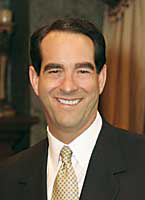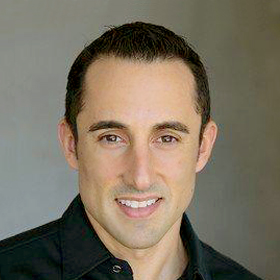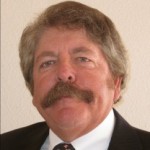
Rich Von Alvensleben
Building a reliable sales team means letting the producers know they are appreciated, says Rich Von Alvensleben.
In sales, the most important element to success is happy people, remarks Rich Von Alvensleben, a former sales lead and representative for National Safety Associates. In his career, Rich Von Alvensleben has generated hundreds of millions of dollars in sales revenue and helped countless other find the same success. Here, Rich Von Alvensleben offers tips on how to grow an innovative and prosperous team.
Forge Friendships
According to Rich Von Alvensleben, people may drudge through their days and get by on minimal effort for a boss. But, when they are working to help a friend, the sky isn’t even a limit. Rich Von Alvensleben says establishing a level of trust and camaraderie with your team can mean the difference between success and failure. The best business leaders are those who are available for one-on-one chats and know how to instill the values of confidence and reliability in their team, adds Rich Von Alvensleben.
Speaking of Reliability
Another element to overall success is showing your team that you, yourself, are reliable and able to produce on your own. When they see success in action, says Rich Von Alvensleben, they will want it for themselves. And, if they like you, they will want you to enjoy more success – which in turn they will share in. Rich Von Alvensleben reports that his best producers were also the ones who built teams of dependable people. Leading by example is their secret to success. When a sales team knows that you are steadfast in your efforts, and see that this consistency has put you in a position of power, Rich Von Alvensleben knows from experience that they will work even harder to become your equal.
Recognize Real Potential
Rich Von Alvensleben says that every person thrives off praise. In a sales situation, the recognition of closing the deal is almost as important as signing the papers. It’s a well-known fact that people want to be noticed for their hard work; otherwise, they would not invest so much effort. According to Rich Von Alvensleben, the financial rewards a team creates for themselves isn’t enough. They also need to be recognized for a job well-done.
Public recognition of positive actions motivates in two ways. First, says Rich Von Alvensleben, it makes the target of your praise feel like his or her work isn’t in vain. Second, according to Rich Von Alvensleben, it feeds the rest of the group and makes them hungry for the same acknowledgement and show of respect. However, Rich Von Alvensleben cautions against praising underperformance as a means of motivation, as it makes the praise far less sincere and rewards the slackers.
Preparedness Peaks Performance
Rich Von Alvensleben has spoken with numerous groups over the years and points out that one central theme underlying success is preparedness. A sales team must be ready before they are sent out into the world, says Von. It’s imperative that they are given the appropriate tools to do business, and that they are able to use them. However, Rich Von Alvensleben has also noted that experience is the best tool of all. Encouraging new or inexperienced persons to push on will afford them the opportunity to create this instrument of success for themselves.
Push Past Political Preferences
It might sound like a no-brainer, but one major mistake new team leaders make is putting their emphasis on their favorites. Rich Von Alvensleben says that this must be avoided at all costs. Rich Von Alvensleben insists that fairness to all involved is not only the right way to conduct business but also the way cement your status as a reliable and consistent front-runner of your industry.
About Rich Von Alvensleben
Rich Von Alvensleben is an entrepreneur and successful businessman from Rocklin, California (a Sacramento Suburb). He has a diversified background that includes working in Antarctica as an underwater water filtration installation specialist. He has also worked extensively in the construction industry. As well, Rich Von Alvensleben worked for many years as an extremely successful sales representative for a large national safety products supplier. This range of skills carried Von into his most current venture as a CEO of One Up Construction (a California Licensed General Contractor) and Operations Manager of Von Vesting, Inc. (a real estate investment firm specializing in distressed properties).
In his spare time, Rich Von Alvensleben and his wife Tiffani enjoy spending time with their children and participating in outdoor activities like snowmobiling.

 Donald Leon Farrow began helping animals in 2006 when he joined local dog rescue organizations in Michigan and Chicago. He noticed that regardless of the level of urgency in assisting the animals, the volunteers were very organized in their work, and tending to what needed to be done by observation and with little or no conversation. Although the work was at times exhausting says Donald Leon Farrow, the volunteers left for home with a sense of calm and humanitarian accomplishment. This says Donald, is comparable to the calm and often voiceless acceptance and companionship that we receive from our animal friends.
Donald Leon Farrow began helping animals in 2006 when he joined local dog rescue organizations in Michigan and Chicago. He noticed that regardless of the level of urgency in assisting the animals, the volunteers were very organized in their work, and tending to what needed to be done by observation and with little or no conversation. Although the work was at times exhausting says Donald Leon Farrow, the volunteers left for home with a sense of calm and humanitarian accomplishment. This says Donald, is comparable to the calm and often voiceless acceptance and companionship that we receive from our animal friends.






